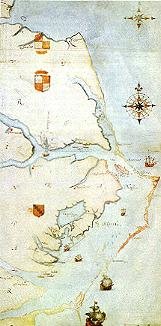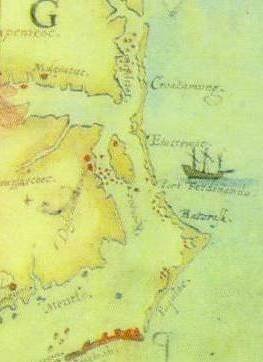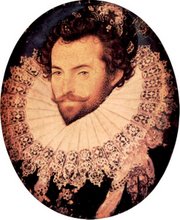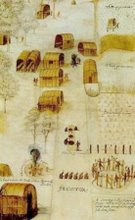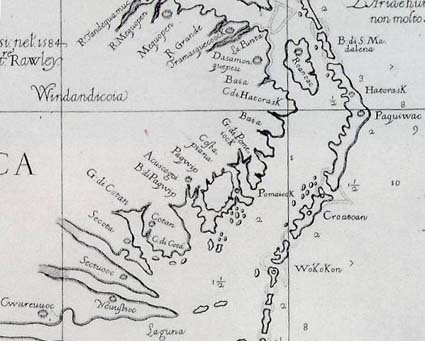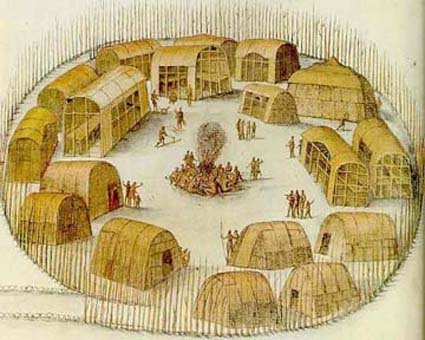By FELICIA R. LEE
Published: February 5, 2008
“African-American Lives 2,” a four-part series on PBS that begins on Wednesday night, belies its sleepy name with the poetry of history, the magic of science and the allure of the family trees of Morgan Freeman, Chris Rock, Tina Turner, Don Cheadle, Tom Joyner and Maya Angelou.
It is the latest incarnation of the highly rated, critically successful star genealogy program that its host, the Harvard professor Henry Louis Gates Jr., presented in 2006. Then Oprah Winfrey, Chris Tucker, Quincy Jones and Whoopi Goldberg were among Professor Gates’s eight guests for “African-American Lives.” That was followed in 2007 by “Oprah’s Roots.”
This time scientists use DNA samples, and scholars peruse slave ship records, wills and other documents to recreate the histories of 12 people, including Professor Gates and one Everywoman guest.
“I conceived of these series as roots in a test tube,” Professor Gates says early in “Lives,” which will be broadcast on most PBS stations in two hourlong episodes on Wednesday and two on Feb. 13. Through the prism of the individual stories of rapes of black women, the failed promise of Reconstruction, the great migration of black Southerners to the North, the struggle for education, land, and freedom, Professor Gates lays bare the basic contradiction of the American dream.
Mr. Rock can be seen wiping away a tear after learning that his great-great-grandfather fought in the Civil War, served in the South Carolina Legislature, and died owning dozens of acres of land. He never knew any of that history, Mr. Rock says in the program. He recounts growing up in a working-class Brooklyn neighborhood and being bused to a white school where he was bullied.
“Until I lucked into a comedy club at, you know, age 20, just on a whim, I assumed I would pick up things for white people for the rest of my life,” Mr. Rock says. “If I’d known this, it would have taken away the inevitability that I was going to be nothing.”
Along with the triumphs are the inevitable tragedies. Tom Joyner, the celebrity radio personality, is shaken to learn that in 1915 an all-white jury in South Carolina convicted his two great-uncles of killing a white man. They were prosperous landowners, but were sent to the electric chair, even though evidence uncovered by the “Lives” researchers suggests their innocence. Mr. Joyner and Professor Gates said they planned to petition the South Carolina government to exonerate them posthumously.
Mr. Joyner is seen in “Lives” gathered with his extended family, reading old newspaper articles and learning a story that had been lost.
“I have had mixed emotions — grief, anger, pride,” Mr. Joyner said in an interview about the program’s revelations, adding, “If you feel — and all of us have these feelings — that you can’t go any further, think about the people in your past and what they survived.”
In addition to the celebrities, the “Lives” interview subjects include Bliss Broyard, a writer whose father, Anatole Broyard, a New York Times book critic and editor, was black and passed for white; the Rev. Peter J. Gomes, a Harvard theologian; Linda Johnson Rice, president and chief executive of the company that publishes Ebony and Jet magazines; Jackie Joyner-Kersee, the Olympic gold-medal athlete; and Kathleen Henderson, a University of Dayton administrator who competed with more than 2,000 entrants to be on the program.
Professor Gates, a co-founder of the genealogy Web site AfricanDNA.com and the director of the W. E. B. Du Bois Institute for African and African American Research at Harvard, keeps things going at a rapid pace for his guests. He whips out photographs of former slave masters (who were sometimes relatives), pinpoints the African countries of ancestors and travels to Ireland himself to track down his Irish roots. In the last episode everyone learns his or her percentage of European, Native American and African blood.
“These stories are much more in-depth than those in ‘African-American Lives,’ ” Mr. Gates said in a recent telephone interview. “Then, a lot of documents had not been digitized, and we’ve learned to interpret the DNA testing better, with more subtlety and sophistication.”
In one of the stories Morgan Freeman puzzles over the nature of the relationship between his white great-great-grandfather and African-American great-great-grandmother, who had eight children together. His great-great grandfather’s employer owned her.
“I don’t know, really,” Mr. Freeman replies when Professor Gates asks him how that information makes him feel.
But, in a twist, the “Lives” researchers discovered that Mr. Morgan’s white great-great grandfather sold land to his biracial sons. And they found the great-great-grandparents’ headstones on that land in Mississippi, side by side, bearing the same last name and surrounded by the graves of their children.
http://www.nytimes.com/2008/02/05/arts/television/05root.html?_r=1&8dpc&oref=slogin
Tuesday, February 5, 2008
“African-American Lives 2” Premiers Tonight Feb. 6th
Posted by
Historical Melungeons
at
2/05/2008 11:25:00 PM
![]()


